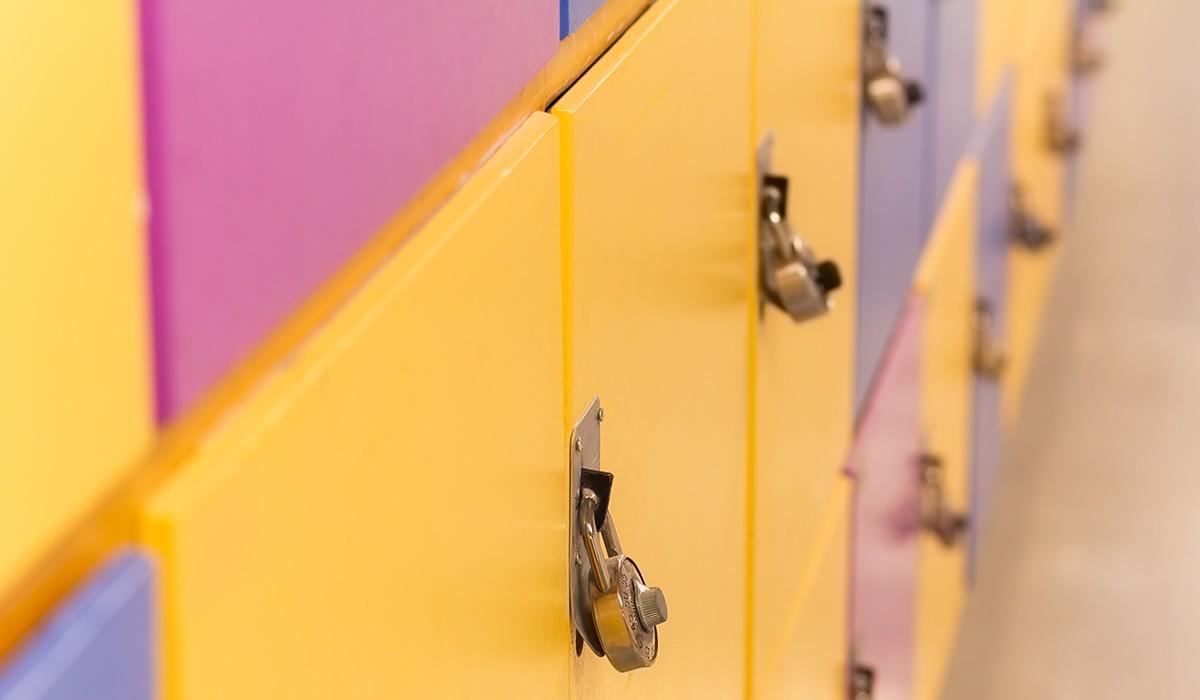

Caring, The Mako Way.
August Mental Health Newsletter
Welcome back to school.....come and be awesome!!
Back to school tips for Parents
From Child Mind Institute
Every child faces challenges when heading back to school. But back-to-school time can be exceptionally difficult for the 20 percent of children who suffer from a mental health or learning disorder.
The school environment demands many things that summer activities don’t — the ability to sit still; get organized; stay on task; and adapt to a new, highly structured daily schedule. School also requires kids to separate from their parents and interact with peers — enormously challenging tasks for any child with anxiety.
Here are six things parents need to know about starting school with vulnerable children:
1. Mental health problems emerge at back-to-school time.
Children with special needs require a lot of help learning how to manage a new schedule. As a parent, you can ease your child’s anxiety by modeling confidence and calm behavior, and by imposing structure in family life (mealtime, homework, and bedtime routines).
But if your child shows signs of extreme anxiety and has unusual difficulties in school, you should immediately discuss your concerns with your child’s teacher as well as a mental health professional, someone who can advise on whether a child’s problems are normal and age appropriate or require further evaluation.
2. Kids’ brains are changing dramatically.
Profound changes occur in the brains of children, particularly as they enter their teens. The teen brain starts “pruning”—strengthening some synapses and eliminating many others. A temporary imbalance of this pruning in certain areas of the brain has been linked to teens’ erratic and risky behaviors, as well as the onset of anxiety disorders, depression, and substance abuse.
It’s important to keep communication open at this vulnerable time, when teenagers are starting to look like adults, and think they are adults, but may not have the skills to manage stress. If you haven’t already started setting time aside each day to talk to your child about challenges and new experiences at school, now is the perfect moment.
3. Anxious parents send anxious kids to school.
Anxiety disorders run in families. Plus, anxious people tend to marry other anxious people; children with two anxious parents are at especially high risk. But genetics are just one factor. Environment is another. Kids really are like sponges, absorbing the energy and adopting the behaviors around them.
One of the most helpful things you can do is model calm, confident behavior, particularly while helping a child get ready for school. A child usually starts school no calmer than their least-relaxed parent.
4. Teachers matter, maybe even more than you think.
Teachers get to know a child’s family through the child’s eyes, and they get to know how a child behaves without their parent present. This means parents can get all kinds of information about a child from their teacher—information about learning difficulties and peer problems as well as academic achievements and close friendships. Teachers are allies, and you should talk to them regularly.
Good questions to ask include: How is my child doing? Do you have any concerns about their social or academic skills? Do you think they need my help with anything?
5. Homework time is crucial.
Young children with learning difficulties, as well as those without any documented problems, can benefit from their parents’ involvement during homework time. Parents should set aside time for a structured “homework session” each evening.
A good routine might start like this: Create space on a desk to work; help them clean out their backpack; review the day’s assignments; and discuss the homework as well as any questions about it. You can observe your child’s learning strengths and weaknesses this way while also reinforcing good study habits. Be positive and encouraging.
6. Don’t jump to conclusions.
Kids grow and develop at different rates. Ideally, a child will acquire various skills within expected time periods, but they may develop more quickly in one area than another. Parents often worry when, for example, one 5-year-old can read fluently while another can barely sound out words on the page. But a lag in one area of development doesn’t mean a child has a disorder. If you think there might be a problem with your child’s development, talk to their teacher. A seasoned teacher, with about 10 years of experience, can frame your child’s progress in relation to as many as 300 other kids. Good teachers are invaluable allies.
5 Tips to ease back to school anxiety.
From Johns Hopkins Medicine
The transition back to class as summer ends can be a stressful time for children and parents alike. But anxiety symptoms that persist beyond the first few weeks of school and that seem excessive may require consultation with an expert, says Johns Hopkins Children’s Center psychologist Erika Chiappini, who specializes in the treatment of childhood anxiety and related disorders at Johns Hopkins Children’s Center.
“Parents or caregivers may notice their children exhibiting some nervousness about new routines, schoolwork or social interactions,” says Chiappini.
“Some of this is a normal part of back-to-school jitters that gradually diminish over a few weeks.”
There are several easy ways to tell when a child’s anxiety is cause for concern. Red flags that indicate a child’s anxiety is causing a great deal of distress include:
- Tantrums when separating from parents or caregivers to attend school
- Difficulty getting along with family members or friends
- Avoidance of normal activities in and outside of school
- Symptoms such as stomachaches, fatigue, difficulty sleeping alone
Tips to Ease Your Child’s Back-to-School Anxiety
- A week or two before school, start preparing children for the upcoming transition by resuming school-year routines, such as setting a realistic bedtime and selecting tomorrow’s clothes.
- Arrange play dates with one or more familiar peers before school starts. Research shows that the presence of a familiar peer during school transitions can improve children’s academic and emotional adjustment.
- Visit the school before the school year begins, rehearse the drop-off and spend time on the playground or inside the classroom if the building is open. Have your child practice walking into class while you wait outside or down the hall.
- Come up with a prize or a rewarding activity that the child could earn for separating from mom or dad to attend school.
- Validate the child’s worry by acknowledging that, like any new activity, starting school can be hard but soon becomes easy and fun.
When to Consider Consulting a Professional for Your Child’s Back-to-School Anxiety
“If after the first month or so, your child continues to show distress around school that is not improving or if the child’s symptoms are worsening, it may be time to seek an evaluation from a psychologist or psychiatrist,” Chiappini advises.
Consulting a mental health professional can help children and parents understand the child’s symptoms and work together on resolving them.
“There are several ways to address anxiety, such as with a particular type of therapy called cognitive behavioral therapy (CBT). CBT teaches the child and parent skills to address and confront anxiety,” Chiappini explains.
Your child’s practitioner may also recommend medication to address anxiety. “Medication, alone or in combination with therapy, is another option that can help to improve symptoms of anxiety and get kids back to their regular activities,” she says.
Empowering Tools: A Simple Strategy for Openly Monitoring and Supporting Your Child's Well-Being
Understanding and using a simple 5-point Scale in your family can be immensely beneficial for parents as they check in on their children's mental health. Using this scale on a regular basis with your kids can give you valuable insight into the emotional intensity your children are experiencing and provide appropriate support.
Awareness Dates
Month
National New Student Orientation Month
National Immunization Month
National Eye Exam Month
National Golf Month
National Picnic Month
Day
- 2nd -Coloring Book Day
- 4th -U.S. Coast Guard Day
- 7th-First Day of School
- 8th -International Cat Day
- 9th -Book Lovers Day
- 12th -International Youth Day
- 15th -Relaxation Day
- 21st -Senior Citizens Day
- 26th -Women's Equality Day
- 26th- National Dog Day
Kindness Ideas
IMAGINE A WORLD WHERE YOU CAN SUCCEED BY BEING NICE. WHERE WE ALL PAY IT FORWARD. WHERE PEOPLE LOOK OUT FOR EACH OTHER. IT ALL STARTS WITH AN ACT.
Important Links to Local Support
LISA ROGULA-MENTAL HEALTH COORDINATOR
My mission is to provide and assist families in finding mental health and community resources in our area. I work closely with our guidance counselors and administrators to raise mental health awareness within our schools, provide mental health support to the entire Makos family, and work to remove the stigma that surrounds mental health within our schools. I am excited to share information and resources to ensure our students have the support necessary to be successful.
OBMHS
23908 Canal Rd. Orange Beach, AL 36561
251-201-9975













